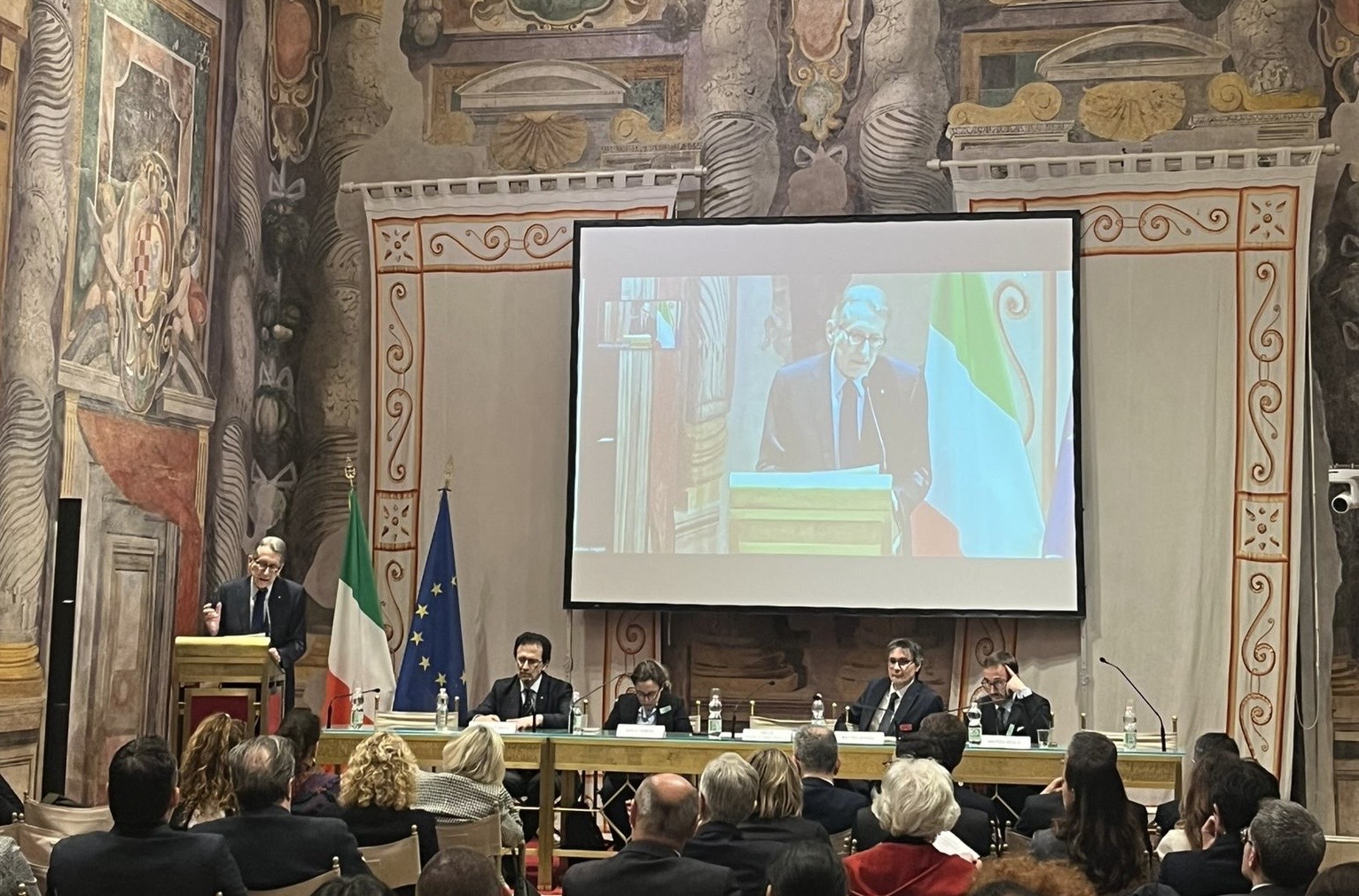On 6th March experts on China gathered in a conference in the Italian Senate to discuss “Italy, Europe, China: academic influences and economic imbalances“. The event was promoted by Sen. Giulio Terzi and several organizations advancing the rule of law: Italian Federation of Human Rights, Fondazione Luigi Einaudi, Global Committee for the Rule of Law “Marco Pannella” and The Global News. In his opening remarks Sen. Terzi said: “There is a common feature binding the issues that the two panels will cover today. The first one concerns the influences that China exerts in order to shrink the scope of academic freedom through its instrumental and deviant narrative based on a strict control of knowledge and the revision of history. The second one concerns the economic development through maritime infrastructure, which represents a vital sector for Beijing as the principles of civil and military development have been the backbone of the Chinese strategy leading China to act not merely in competitive terms, but more aggressively and antagonistically vis-à-vis our societies.”
Giulio Terzi addressed specifically the presence of Confucius Institutes in Italian universities, an issue which is puzzling other European countries as well. Confucius Institutes are not simply cultural centers set up by the People’s Republic of China. As Terzi put it, “they are the operating arm of Chinese soft power, and a tool to spread propaganda, apply censorship and collect data. Unlike the Goethe Institute, the British Council, the Alliance Française or the Japanese cultural institutes, Confucius Institues have a political agenda. The history they teach on imperial China, Tibet, Taiwan, Hong Kong – not to mention the Tiananmen Square massacre which is totally removed by Chinese books – is rewritten. A distorted past through propaganda fitting the authoritarian regime of Xi Jinping. Unfortunately, Italy seems to be unique in Europe as not one university in our country has shut down any one of the sixteen Confucius Institutes nor have they scaled down the relations with them.”
Furthermore, a report commissioned by the European Parliament on Chinese strategies in 2021 outlines the exploitation of European infrastructures, in particular ports, to Beijing’s advantage. The signs regarding the current overall trade environment between Europe and China are alarming. “Beijing has adopted aggressive policies bringing about a trade imbalance making the EU-China relationship look less and less like a partnership between equals. It has grown disproportionaltely in favor of the not-so-law-abiding side of the partnership. In Borrel’s words, the trade imbalance between the EU and China is ‘abysmal’. Thus, it is crucial to secure our supply chains by adjusting them to the fundamental needs of our national security. The principles of security and reciprocity especially within such a strategic partnership can no longer be neglected”.
Giulia Pompili, journalist at Il Foglio, highlighted how China has benefited enormously from an approach based on “scientific diplomacy” which has allowed Beijing to steal information and data for their civil and military “dual use”. Pompili described the Canadian federal government’s decision to establish national security guidelines for scientific partnership, in particular with countries that exert hostile influence through organizations that are state-owned or subject to state-influence.
French senator André Gattolin, rapporteur of an investigation by the Seante on foreign influences in France, said “it became clear quite soon that China not the only is the main country responsible for influence and interference, China is the most powerful, with a shape-shifting and systemic modus operandi which led several French universities to act in a way contrary to the principle of academic freedom.” Similarly, executive director of the Inter-Parliamentary Alliance on China (IPAC), Luke de Pulford, described the dependencies and vulnerabilities of the British academic sector, as well as the self-censorship that has spread within UK universities. “We need to learn how to ring-fence, but we will not be able to ring-fence without learning more about what we are facing”, ed Pulford said. Andrea Merlo, member of the GCRL Scientific council and deputy editor of The Global News, said that in order to protect freedom of research, it is necessary to develop a new concept, notably “freedom and security of research”. Antonio Stango, president of the FIDU, highlighted the subtle nature of the malevolent activities that China exerts in order to influence and interfer globally.
Watch the video of the conference (in Italian)

